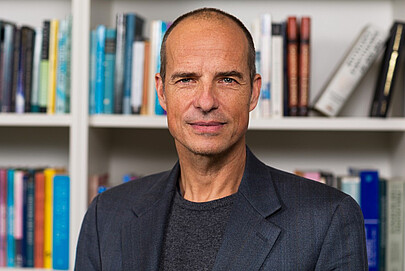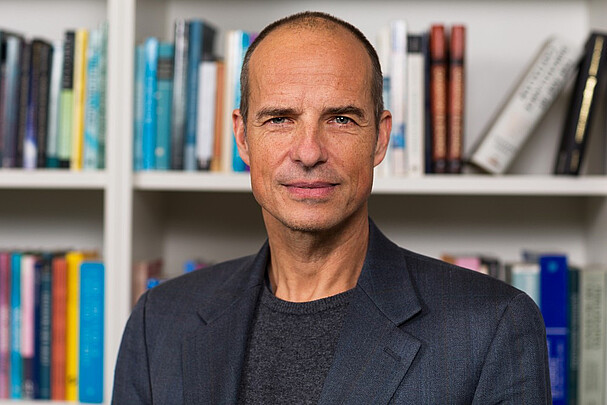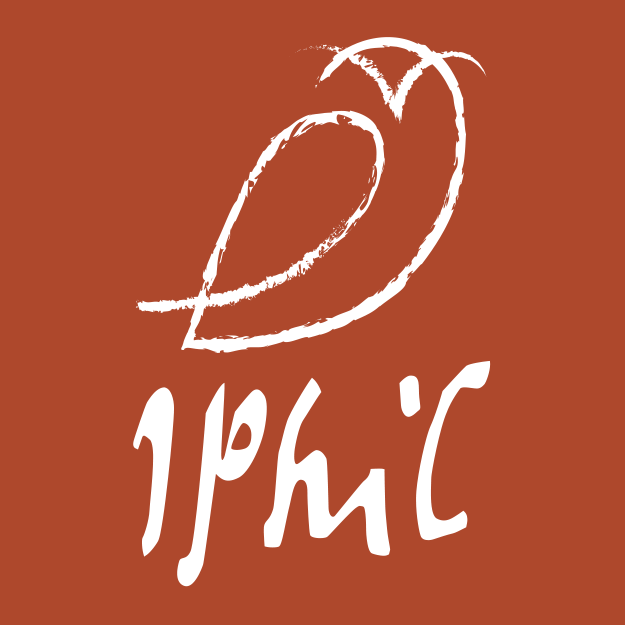Prof. Dr. Mathias Frisch


30159 Hannover
und nach Vereinbarung


Bitte vereinbaren Sie einen Termin
Bitte vereinbaren Sie einen Termin
und nach Vereinbarung
Profil
Ich bin Professor für Philosophie und Co-Direktor des DFG-geförderten Graduiertenkollegs SOCRATES ("Social Credibility and Trustworthiness of Expert Knowledge and Science-Based Information"). Ich bin Mitherausgeber des European Journal for Philosophy of Science (EJPS). Bevor ich an die Leibniz Universität Hannover kam, hatte ich eine Professur an der University of Maryland (von 2003 bis 2016). Davor war ich von 1998 bis 2003 Assistant Professor an der Northwestern University.
Ich habe 1998 an der University of California in Berkeley mit einer Dissertation über die Rolle von Modellen in der wissenschaftlichen Erklärung und bin der Autor von zwei Büchern: Inconsistency, Asymmetry, and Non-Locality: A Philosophical Investigation of Classical Electrodynamics (Oxford University Press 2005) und Causal Reasoning in Physics (Cambridge University Press 2014).
Mein Hauptforschungsgebiet ist die Wissenschaftsphilosophie. Ich beschäftige mich vor Allem mit Fragen in der Philosophie der Physik, (wie die Rolle von Kausalität und Naturgesetze in der Physik) und mit philosophischen Fragen im Zusammenhang mit der Klimakrise, wie z. B. der Umgang mit großen Unsicherheiten und Fragen an der Schnittstelle von Wissenschaftsphilosophie und Wissenschaftsethik.
Schwerpunkte in Forschung und Lehre
Allgemeine Wissenschaftsphilosophie
Philosophie der Physik
Philosophie und Klimawandel
-
Publikationen
Monographien
2014
Causal Reasoning in Physics, Cambridge: Cambridge University Press
2003
Inconsistency, Asymmetry, and Non-Locality: A Philosophical Investigation of Classical Electrodynamics, New York: Oxford University Press
Artikel in begutachteten Zeitschriften
2022 "White, L., van Basshuysen, P., & Frisch, M. “When Is Lockdown Justified?”. Philosophy of Medicine, 3(1). https://doi.org/10.5195/pom.2022.85 2021 Katzav, Joel, Erica L Thompson, James Risbey, David A Stainforth, Seamus Bradley, and Mathias Frisch: “On the appropriate and inappropriate uses of probability distributions in climate projections and some alternatives”, Climatic Change 169 (15). 2021 Basshuysen, Philippe van, Lucie White, Donal Khosrowi, and Mathias Frisch: “Three ways in which pandemic models may perform a pandemic”. Erasmus Journal for Philosophy and Economics, 14 (1). 110-127. 2020 “Uncertainties, Values, and Climate Targets,” Philosophy of Science Volume 87, 5. 979-990. 2020 "Causation in Physics", The Stanford Encyclopedia of Philosophy (Fall 2020 Edition), Edward N. Zalta (ed.) 2017 "Climate Policy in the Age of Trump", Kennedy Institute of Ethics Journal, Volume 27, 2 Supplement, E87-E106. 2016
“Reassessing the Ritz-Einstein debate on the radiation asymmetry in classical electrodynamics" Studies in History and Philosophy of Modern Physics 55. 13-23.
2015 "Book Symposium on Causal Reasoning in Physics: Replies to my critics." Metascience, November Volume 24, Issue 3, pp 366-372. 2015 “Tuning climate models, predictivism, and the problem of old evidence.” European Journal for Philosophy of Science 5:2. 171-190. 2015
“Users, Structures, and Representations” British Journal for the Philosophy of Science 66:2, 285-306.
2014
“Models and Scientific Representation or: who is Afraid of Inconsistency?” Synthese Vol. 191, 13. 3027-3040.
2014
“Laws in Physics”, European Review 22, Suppl. S1, 33-S49.
2014
“Physics and the Human Face of Causation,” Topoi 33, 2, 407-419. DOI 10.1007/s11245-013-9172-0.
2013
“Classical Electrodynamics: no more toils and troubles?”, Studies in History and Philosophy of Modern Physics 44, 4, 527-531.
2012 “Modeling Climate Policies: A Critical Look at Integrated Assessment Models”, Philosophy and Technology 26 (2013). 117-137. 2012 “Climate Change Justice,” Philosophy and Public Affairs (Summer 2012). 225-253. 2012
“No Place for Causes? Causal Skepticism in Physics." European Journal for Philosophy of Science 2:3, 313-336.
2011
“From Boltzmann to Arbuthnot: higher-level laws and the Best System,” Philosophy of Science 78, 1001-1011.
2011
“Principle or Constructive Relativity?” Studies in the History and Philosophy of Modern Physics 42, 176-183.
2010
“Causes, Counterfactuals, and Non-Locality,” Australasian Journal of Philosophy, 88/4 , 655 – 672.
2009 “Causality and dispersion: a reply to John Norton,” British Journal for the Philosophy of Science 60, 487-495.
2009 “‘The most Sacred Tenet’? Causal Reasoning in Physics,” British Journal for the Philosophy of Science 60, 459-474.
2009 “Philosophical Issues in Electromagnetism,” Philosophy Compass 4/1, 255–270.
2008 “Conceptual Problems in Classical Electrodynamics,” Philosophy of Science 75:1, 93-105.
2006 “A Tale of Two Arrows,” Studies in the History and Philosophy of Modern Physics 37, 542-558.
2005 “Counterfactuals and the Past Hypothesis,” Philosophy of Science 72:5, 739–750.
2005 “Mechanisms, Principles, and Lorentz’s Cautious Realism,” Studies in the History and Philosophy of Modern Physics 36:4, 659-679.
2004 “Laws and Initial Conditions,” Philosophy of Science 71:5, 696-706
2004 “Inconsistency in Classical Electrodynamics,” Philosophy of Science 71, 525-549.
2002 “Non-Locality in Classical Electrodynamics,” British Journal for the Philosophy of Science, 1-19.
2000 “(Dis-)Solving the Puzzle of the Arrow of Radiation,” British Journal for the Philosophy of Science 51, 381-410
1999 “Van Fraassen’s Dissolution of Putnam’s Model-Theoretic Argument,” Philosophy of Science, 66, 158-164.
Artikel in herausgegebenen Bänden
2023
"Statistical mechanics and the asymmetry of causal influence," in The Probability Map of the Universe – David Albert's Time and Chance, eds. Barry Loewer, Eric Winsberg, and Brad Weslake, Harvard University Press.
2022 “The Babylonian conception and conventionalism about laws in physics,” in Y. Ben Menahim (ed.) Rethinking the Concept of Law of Nature, Springer. 2021
"Causal Explanation", in Routledge Companion to Philosophy of Physics, eds. Eleanor Knox and Alastair Wilson. 454-465.
2019 “Calibration, Validation, and Confirmation” in C. Beisbart and N. J. Saam (eds.), Computer Simulation Validation, Simulation Foundations, Methods and Applications. Springer. 2018 “Uncertainty and Values in climate policy optimization models,” in Winsberg, E. and Lloyd, E., eds., Conceptual Foundations of Climate Modeling, The University of Chicago Press. 2018 “Modeling Climate Policies: The Social Cost of Carbon and Uncertainties in ClimatePredictions” in Winsberg, E. and Lloyd, E., eds., Climate Modeling: Philosophical and Conceptual Issues, Palgrave-MacMillan. 2014
“Unsharp Humean Chances in Statistical Physics: a Reply to Beisbart” together with Luke Glynn, Radin Dardashti, and Karim Theabault in New Directions in the Philosophy of Science, eds. M. Galavotti, et al. 531-5.
2014
“Why Physics Can’t Explain Everything,” in Chance and Temporal Asymmetry, ed. Alastair Wilson, Oxford University Press, 221-240.
2013
“Time and Causation,” in A Companion to the Philosophy of Time, eds. Heather Dykes and Adrian Bardon. Oxford: Wiley-Blackwell, 282-300.
2012
“Kausalität in der Physik,” (“Causality in Physics”) in Philosophie der Physik, ed. Michael Esfeld, Suhrkamp.
2010
“Causal Models and the Asymmetry of State Preparation” in EPSA Philosophical Issues in the Sciences. Launch of the European Philosophy of Science Association, eds. M. Suárez, M. Dorato and M. Rédei. Springer Verlag.
2010
“Does a low-Entropy constraint prevent us from influencing the Past?,” in Time, Chance, and Reduction, eds. Andreas Hüttemann and Gerhard Ernst, Cambridge University Press, 13-33.
2007
“Causation, Counterfactuals and Entropy,” in Russell's Republic: The Place of Causation in the Constitution of Reality, eds. Huw Price and Richard Corry, Oxford University Press, 351-395.
2007
“A New Look at Popper’s Pond,” in Karl Popper: A Centenary Assessment, ed. Ian Jarvie, Ashgate, 77-84.
